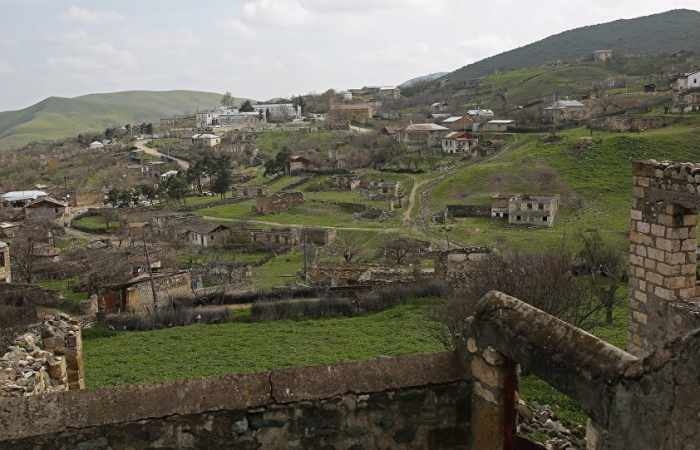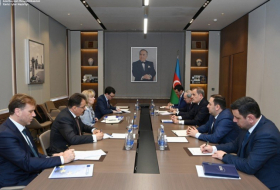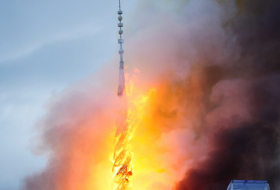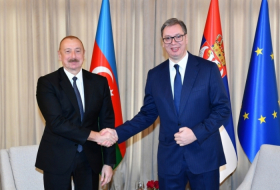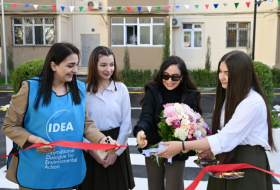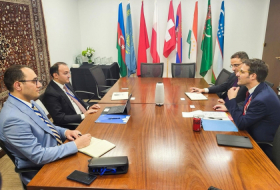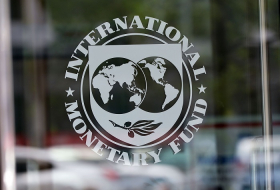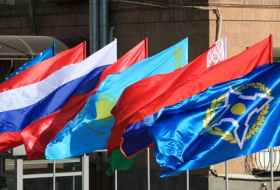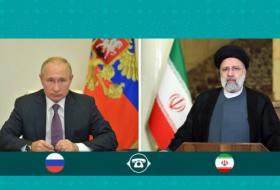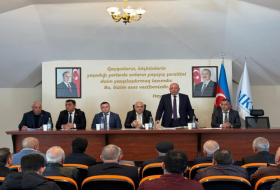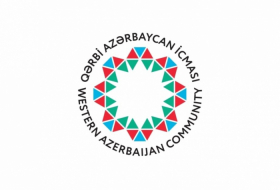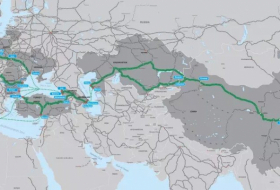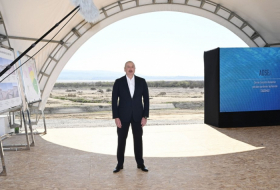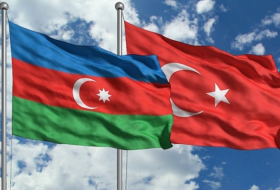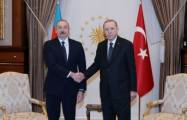Next week, U.S. National Security Advisor John Bolton will travel to Azerbaijan and Armenia, marking the highest-level visit from Washington, D.C., to both countries since 2016 presidential elections.
One of the most important topics to be discussed in Baku and Yerevan will be the protracted Armenia-Azerbaijan conflict that continues to threaten the peace and stability in the South Caucasus region, strategically located between Russia and Iran, at the nexus of globally important energy and transportation corridors.
The United States has been one of the mediators alongside Russia and France, as co-chairs of the Minsk Group of the Organization for Security and Cooperation in Europe, tasked for over 25 years with finding a peaceful solution to the Armenia-Azerbaijan conflict, albeit without any tangible results.
This conflict remains the most dangerous conflict in the former Soviet Union. The outbreak of hostilities in April 2016, which was the largest since the ceasefire of 1994, showed once again the vulnerability of the current status quo and the need for the conflict’s soonest resolution.
The facts are crystal clear: In the early 1990s, Armenia invaded around 20 percent of Azerbaijan’s sovereign territory, expelling over 800,000 Azerbaijani civilians from their ancestral lands in the Nagorno-Karabakh region and seven surrounding districts.
For the sake of comparison, the entire territory of the invaded lands is almost 13 times the area of the City of Los Angeles or larger than the U.S. State of Connecticut.
The illegal military occupation continues to this day despite fierce condemnation by multiple United Nations Security Council (UNSC) resolutions, as well as by other major international organizations.
The real obstacle to resolving the conflict and bringing the much-needed peace to Armenian and Azerbaijani people remains unchanged: Armenia’s refusal to comply with UNSC resolutions by withdrawing its troops from the illegally occupied territories of Azerbaijan and enabling the expelled population of these territories to return to their homes.
As the U.S. Ambassador to Armenia Richard Mills recently stated, any settlement of the conflict requires the return of the occupied territories to Azerbaijan.
The change of the government in Armenia last April brought about some renewed hopes for the negotiated settlement. The new government’s bellicose rhetoric and actions since then, however, have somewhat dampened those hopes.
Nevertheless, for our region to thrive together, peace is urgently needed. The Minsk Group must make it abundantly clear to Armenia’s new leadership that peace in Nagorno-Karabakh is not just important — it is vital for addressing the serious economic, social and political challenges Armenia is facing now.
Armenia is experiencing a grave demographic decline. Tens of thousands of young people, lacking opportunities at home, are emigrating from the country in search of a better life.
Around 1.5 million Armenians — almost half of the country’s population — have permanently left Armenia since 1991, with many Armenians also choosing to come to the United States, deteriorating the already burdensome immigration problem here.
According to the United Nations, Armenia could lose another million people by 2050. Social infrastructure is gradually eroding, with the poverty rate reaching almost 30 percent, which is the highest number in the South Caucasus region (compared to 5 percent in Azerbaijan and 22 percent in Georgia). The economy relies heavily on foreign assistance and remittances.
In contrast, Azerbaijan has become the largest economy in the region, building strong partnerships around the world, implementing multi-billion dollar energy and transportation projects connecting continents, and contributing to the global energy security.
As a reliable strategic partner of the United States in a critically important region, Azerbaijan has strongly supported America’s efforts to fight international terrorism and diversify energy supplies. Most importantly, Azerbaijan is a place where Muslims, Christians and Jews continue to live together in peace, harmony and mutual respect, breaking stereotypes every day.
Therefore, peace with Azerbaijan would tremendously benefit Armenia by bringing open borders, security and stability, stimulating investments, and integrating Armenia into the region’s vast energy and transportation network.
Peace in Nagorno-Karabakh is in the best interest of the people of Armenia. It is time for Yerevan to put aside belligerence and engage constructively in negotiations to resolve the conflict.
It is to be hoped that as a co-mediator with much at stake in the region, the United States will double its efforts in helping both sides achieve lasting peace and reconciliation.
Nasimi Aghayev is Azerbaijan’s Consul General to the Western United States, based in Los Angeles.
Read the original article on The Daily Caller
More about: Nagorno-Karabakh peace








